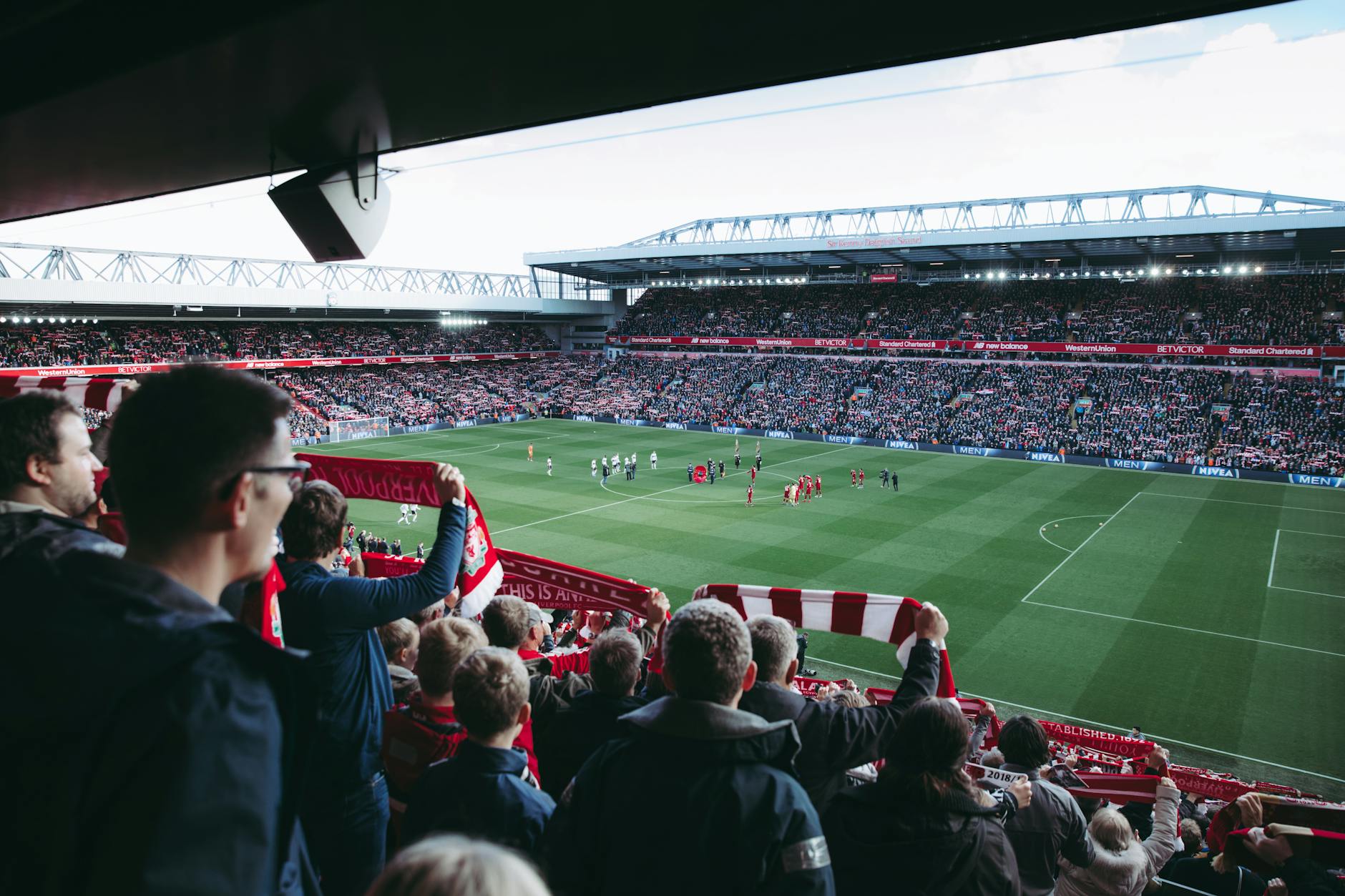Liverpool’s Bid for ‘Allez Allez Allez’ Trademark Sparks Debate
The club’s attempt to secure rights to a popular fan chant highlights the evolving relationship between football culture and intellectual property.
Football clubs, much like any major brand, are increasingly recognizing the value of their unique identity. This extends beyond the crest and team colours to the very songs and chants that resonate through stadium terraces, forging a deep connection between supporters and their beloved teams. Liverpool Football Club’s recent attempt to trademark the popular terrace anthem “Allez Allez Allez” has brought this intersection of fan culture and intellectual property law into sharp focus, raising questions about ownership, authenticity, and the commercialization of football traditions.
The Genesis of a Terrace Anthem
The chant, a reworking of the 1980s disco hit “Go West” by the band The Village People, gained significant traction with Liverpool supporters during their successful 2017-18 Champions League campaign. Its rousing melody and unifying lyrics quickly made it a staple, sung with fervent passion by the Anfield faithful and beyond. This widespread adoption and emotional resonance underscore the chant’s cultural significance within the club’s modern history.
Liverpool’s Trademarking Endeavor
According to reports, Liverpool Football Club made an application to trademark the phrase “Allez Allez Allez.” The aim of such an application, typically, is to protect the club from unauthorized commercial use of the phrase, preventing others from profiting from its association with Liverpool FC. This could encompass merchandise, broadcasts, or any other commercial ventures that leverage the chant’s recognition and appeal, which is intrinsically linked to the club’s identity and recent successes.
Navigating Fan Ownership vs. Commercial Rights
The move has inevitably sparked discussion among fans and observers. While clubs have a legitimate interest in protecting their brand and controlling its commercial exploitation, chants like “Allez Allez Allez” often feel like they belong to the supporters themselves. They are born organically from the stands, shaped by collective emotion and shared experience. This presents a delicate balancing act: how can a club assert its legal rights without alienating the very fanbase that breathed life into the phrase?
Some argue that trademarking a fan chant is a natural extension of brand protection, akin to safeguarding team names or logos. They point to the potential for misuse by third parties who might seek to capitalize on Liverpool’s success and fan loyalty without any contribution to the club. From this perspective, securing intellectual property rights ensures that any commercial benefit derived from the chant remains aligned with the club’s interests and, by extension, benefits the club’s future operations.
Conversely, a significant segment of the fanbase views such chants as communal property, expressions of shared identity that predate and exist independently of commercial considerations. There’s a concern that the formalization of ownership could stifle the organic evolution of fan culture or create a perception that the club is attempting to “own” the supporters’ collective voice. This perspective often emphasizes the intangible, emotional value of these chants, which is seen as inherently unquantifiable and not subject to commercial appropriation.
Precedents and Wider Implications
Liverpool’s attempt is not an isolated incident in the world of football. Clubs globally have explored similar avenues to protect their intellectual property, including fan-generated content and iconic chants. The growing commercialization of football, with its intricate web of sponsorship deals, merchandise, and broadcasting rights, naturally leads clubs to explore all available means of brand safeguarding. This trend raises broader questions about the future relationship between football clubs and their supporters, particularly concerning the ownership of cultural touchstones.
The legal framework surrounding trademarks is designed to prevent confusion and unfair competition by distinguishing goods and services. However, applying these principles to intangible cultural expressions like football chants can be complex. The key challenge lies in demonstrating a clear commercial nexus and avoiding overreach that could be perceived as stifling creativity or communal expression.
The Path Forward: Balancing Interests
For Liverpool FC, the success and implications of their trademark application will likely depend on the specific legal interpretations and the club’s subsequent approach to enforcement. Transparency and communication with the fanbase regarding the rationale behind such moves could be crucial in mitigating potential friction. Many supporters might understand the need for protection against blatant exploitation, provided it doesn’t impede the natural, celebratory use of the chant within the stadium and among the community.
The situation serves as a microcosm of a larger debate within the sports industry: where does the club’s brand end and the fans’ cultural ownership begin? As football continues to evolve as a global entertainment product, finding this balance will be an ongoing challenge for all clubs seeking to maintain strong connections with their supporters while also managing their commercial interests effectively.


























